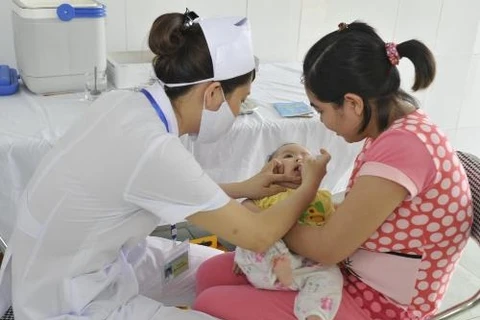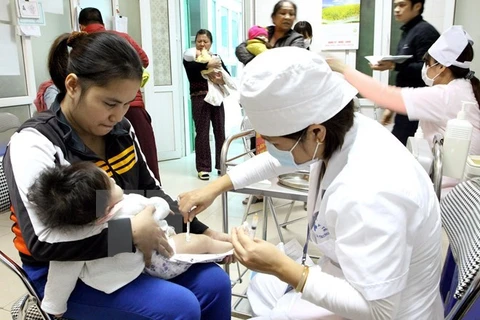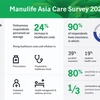Da Nang (VNA) – Vietnam’s National Expanded Programme on Immunisation since its launch in 1985 has greatly contributed to reducing the rate of catching diseases, ending polio, and controlling many infectious diseases as well as cutting down the mortality rate among children.
The the National Institute of Hygiene and Epidemiology (NIHE) gave the assessment a t a conference on popularising risks in the expanded immunisation held in Da Nang on June 10 for media agencies in 15 provinces and cities in the Central and Central Highlands regions.
According to Dr. Nguyen Van Cuong from the Office of National Expanded Immunisation under the NIHE , the e expanded i mmunisation rate in mountainous and remote areas remains low, with the hepatitis B vaccination rate for babies within 24 hours after birth reaching only 69.8 percent in 2015.
The main reason behind this situation was the presence of some strong reactions after immunisation, causing panic among mothers, he said, adding the fact that mothers waited for pay vaccines left children not being vaccinated on schedule with enough shots, increasing risk of catching diseases like rubella and whooping cough.
From that reality, provinces and cities need to step up communication campaigns to improve awareness of the public, especially those in remote and disadvantaged areas.
Figures show that in 2015, diphtheria and whooping cough cases decreased 410-fold and 281-fold, respectively, against 1984, while those suffering from measles dropped 502-fold against 1984 and 66.4-fold against 2014.
Thanks to vaccination, polio was put under control with the last patient recorded in 1997. Vietnam was recognised by the World Health Organisation as a country free from polio in 2000.
Last year, the expanded immunisation achieved many positive results, with the full immunisation rate for children aged under one reaching 97.2 percent, tetanus vaccinations for pregnant women 92.9 percent.
Vaccinations against measles-rubella for children aged from 1-14 hit 98.2 percent nationwide.-VNA

























